ACDI’s research aims to increase the scientific knowledge and understanding needed to improve human development outcomes in the face of climate change. Our multi-scale research is anchored in South Africa, but extended via collaboration to southern Africa, and the wider African continent, with an additional eye on South-South and South-North collaboration beyond Africa.
ACDI aims to be societally relevant. We not only respond to stakeholder evidence needs, but also pose new questions whose answers might shift societal perspectives and agendas. ACDI’s research approach is founded on the recognition that the development and climate change nexus presents complex, even “wicked”, problems that are best answered in an integrative, interdisciplinary and transdisciplinary setting. Such a setting has the potential to enable and stimulate cross-fertilisation of diverse viewpoints and the production of new knowledge.
View our current project and past project lists below. If you are interested in engaging or collaborating, please contact us.
Research Labs at ACDI
Climate Risk Lab
African Synthesis Centre for Climate Change, Environment and Development
People in Nature & Climate (PiNC) Lab
Current Projects
ARUA Centre of Excellence in Climate & Development (ARUA-CD)
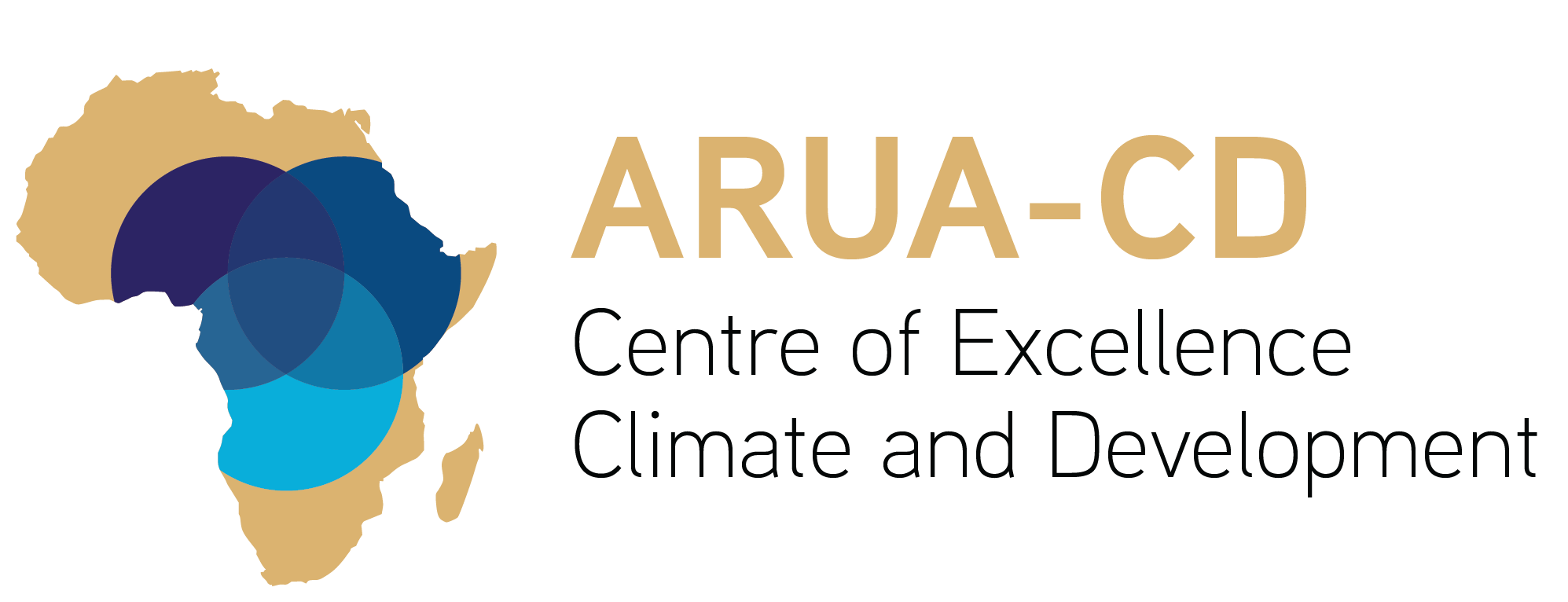 The African Research Universities Alliance (ARUA) established Centres of Excellence (CoEs) to strengthen research and postgraduate training across its member universities. A Centre of Excellence is a collaborative platform, typically a team, shared facility or institutional hub, that provides leadership, knowledge generation and capacity building in a specific area of focus. These centres bring together leading researchers and postgraduate students from across the continent and beyond to conduct high-quality, interdisciplinary research on critical development challenges. Unlike traditional academic structures, CoEs are designed to transcend disciplinary and institutional boundaries, enabling more agile, inclusive and impactful collaboration. The ARUA Centre of Excellence in Climate and Development (ARUA-CD) is one of these flagship initiatives. It serves as a continental hub for research, training and policy engagement at the intersection of climate change and sustainable development. Drawing on the strengths of three core partner institutions, the African Climate and Development Initiative at the University of Cape Town, the Institute for Environment and Sanitation Studies at the University of Ghana, and the Institute for Climate Change and Adaptation at the University of Nairobi, ARUA-CD fosters African led responses to climate challenges through knowledge co-production, graduate education and policy relevant outputs.
The African Research Universities Alliance (ARUA) established Centres of Excellence (CoEs) to strengthen research and postgraduate training across its member universities. A Centre of Excellence is a collaborative platform, typically a team, shared facility or institutional hub, that provides leadership, knowledge generation and capacity building in a specific area of focus. These centres bring together leading researchers and postgraduate students from across the continent and beyond to conduct high-quality, interdisciplinary research on critical development challenges. Unlike traditional academic structures, CoEs are designed to transcend disciplinary and institutional boundaries, enabling more agile, inclusive and impactful collaboration. The ARUA Centre of Excellence in Climate and Development (ARUA-CD) is one of these flagship initiatives. It serves as a continental hub for research, training and policy engagement at the intersection of climate change and sustainable development. Drawing on the strengths of three core partner institutions, the African Climate and Development Initiative at the University of Cape Town, the Institute for Environment and Sanitation Studies at the University of Ghana, and the Institute for Climate Change and Adaptation at the University of Nairobi, ARUA-CD fosters African led responses to climate challenges through knowledge co-production, graduate education and policy relevant outputs.
AFRIVERSE
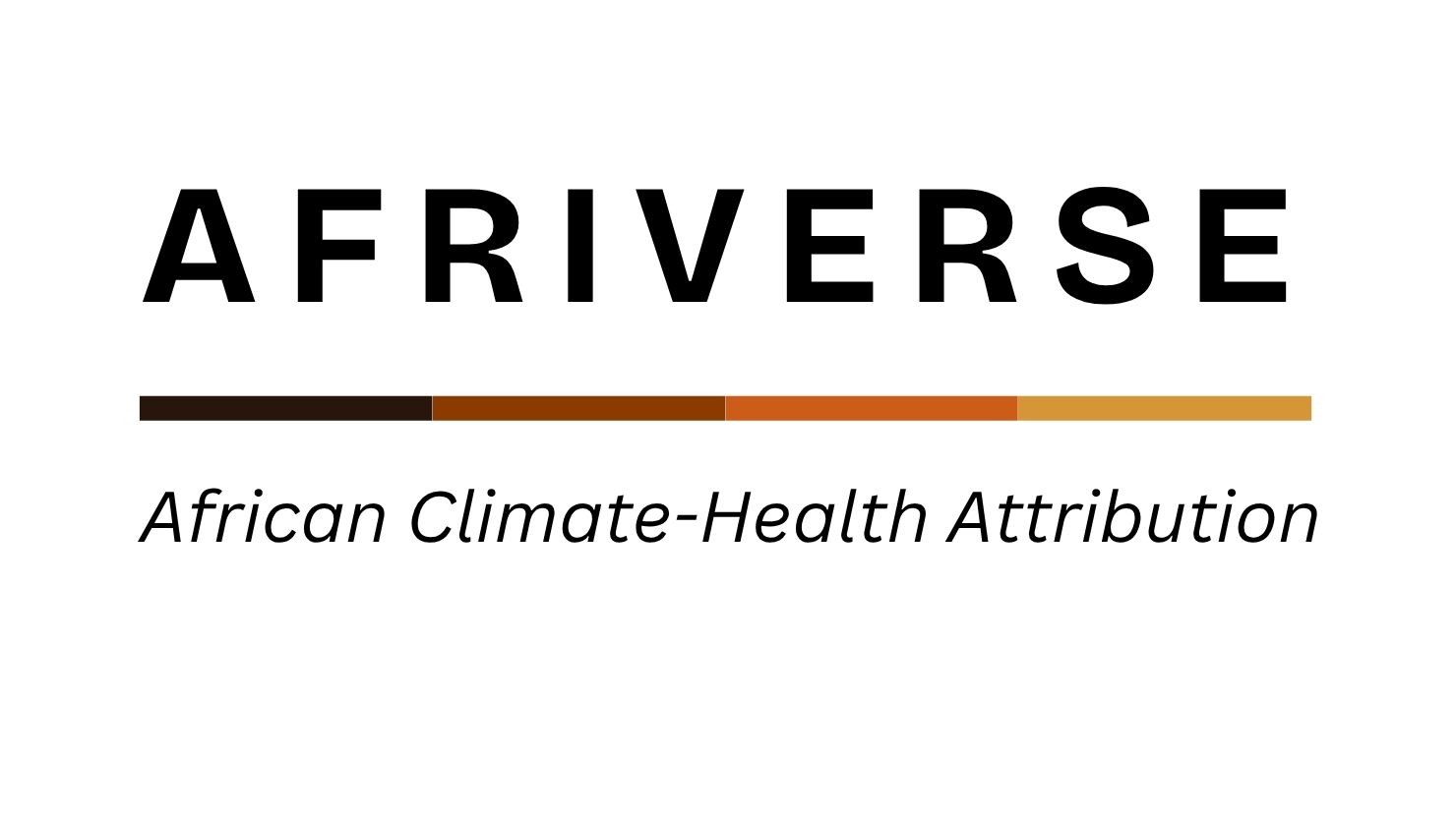 AFRIVERSE aims to address the under-representation of Africa in climate-health impacts attribution through building new climate and health data, digital tools for access, analysis and communication, and human capacity, in parallel with several Africa-focused attribution studies by teams of African scientists. The AFRIVERSE teams are applying a synthesis team science approach to advance synthesis research in this area.
AFRIVERSE aims to address the under-representation of Africa in climate-health impacts attribution through building new climate and health data, digital tools for access, analysis and communication, and human capacity, in parallel with several Africa-focused attribution studies by teams of African scientists. The AFRIVERSE teams are applying a synthesis team science approach to advance synthesis research in this area.
Accelerating Climate Adaptation via Meso-level Integration (ACAMI)
 Accelerating Climate Adaptation via Meso-level Integration (ACAMI) is an innovative 2 year transdisciplinary project focusing on the roles and functions of public, private, and non-profit organizations involved in implementing climate change adaptation interventions intended to benefit agricultural small-scale producers in Africa. These organizations are critical intermediaries between small-scale producers and the policy, scientific, and finance communities. They thus have a significant impact on adaptation through the diverse knowledge they integrate, the decisions they make, and the resources they provide. ACAMI aims to create tools and approaches that help ensure that the diverse roles, capacities and functions of these organizations are leveraged effectively in support of more resilient and sustainable livelihoods for the men and women in farming communities across Africa.
Accelerating Climate Adaptation via Meso-level Integration (ACAMI) is an innovative 2 year transdisciplinary project focusing on the roles and functions of public, private, and non-profit organizations involved in implementing climate change adaptation interventions intended to benefit agricultural small-scale producers in Africa. These organizations are critical intermediaries between small-scale producers and the policy, scientific, and finance communities. They thus have a significant impact on adaptation through the diverse knowledge they integrate, the decisions they make, and the resources they provide. ACAMI aims to create tools and approaches that help ensure that the diverse roles, capacities and functions of these organizations are leveraged effectively in support of more resilient and sustainable livelihoods for the men and women in farming communities across Africa.
ALBATROSS - Advancing knowledge for Long-term Benefits and climate Adaptation ThRough hOlistic climate Services and nature-based Solutions
Africa is particularly vulnerable to the impacts of climate change, with Sub-Saharan countries facing severe environmental, economic, and social consequences due to increasing temperatures, droughts, and ecosystem degradation. This exacerbates issues like food and water insecurity, population displacement, and urbanisation in informal settlements, further increasing exposure to natural hazards. Governments face significant challenges in addressing these complex issues, which the Africa-EU partnership and the EU Strategy on Adaptation to Climate Change aim to support. The ALBATROSS project, with ACDI as a key partner, focuses on enhancing the capacity for climate services and nature-based solutions to help Africa adapt to these mounting challenges.
AXA Research Chair in African Climate Risk
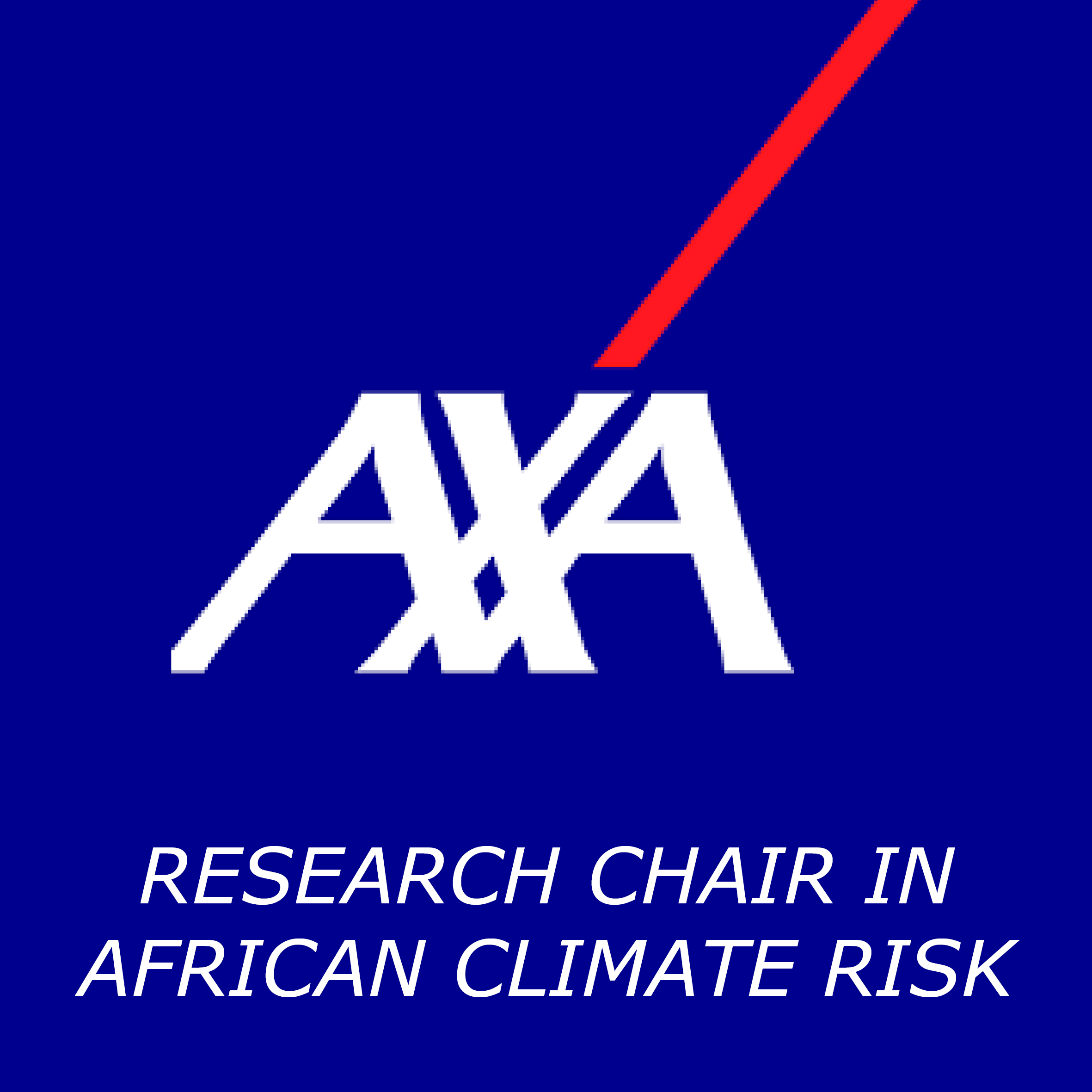
The overall AXA Successional Chair Programme aims to make a step change in the research field of African Climate Risk. The format is a succession of four Research Chairs who will undertake discrete research programmes over 5-year tenures. Each Chair will undertake research at the cutting edge of knowledge in their domain of expertise – within the broader successional programme – aligning with priorities in understanding, reducing and managing African climate risk emerging at the time of their tenure.
Professor Mark New is the first AXA Chair in African Climate Risk. The focus of his research programme is on quantifying and understanding the changing risk of climate on water and food security in southern Africa. It brings together expertise in climate and weather risk attribution, statistical sciences, hydrological and agricultural sciences, and economics to: (i) quantify the human influence on both climate risk and hydrological/agricultural system exposure; (ii) to apportion socio-economic damage between these human influences and natural processes; and (iii) to evaluate the return on investment – both financial and human – of mechanisms to reduce the sensitivity of exposed water and food systems to climate change. Close interactions with public, private sector and civil society organisations during the programme will help to maximise the societal impact of the research.
The Successional Chair Programme is aligned with the long-term research strategy of the University of Cape Town, which aims to produce original, scientifically innovative, internationally competitive research on Africa in the global context, and attract the best African talent to return to or remain in Africa, working on issues critical to the social and economic development of the continent.
Community Resilience in Cape Town (CoReCT)
Many residents in Cape Town’s townships and informal settlements are frustrated with the limited access to water and sanitation services. To understand these experiences and gather information to present to decision-makers, ACDI researchers Gina Ziervogel and Johan Enqvist teamed up with the Western Cape Water Caucus (WCWC). The aim was to conduct a study that will help WCWC’s work to improve conditions in communities, support its members to learn how to do “citizen science”, and to produce qualified and relevant academic research.
Developing Country Impacts Modelling Analysis (DECIMALS)
The ACDI has been involved in DECIMALS grant projects over two phases:
Phase 1:
This DECIMALS project explored the impact of solar radiation management (SRM) on regional characteristics of drought and heat extremes over southern Africa. The project is funded by the Solar Radiation Management Governance Initiative (SRMGI).
Phase 2:
The overall objective of this project is to assess the impact of solar radiation management (SRM) on agricultural production over southern Africa through the lens of extreme weather and climate events (such as drought, heat waves and heavy rainfall) and their large-scale drivers. The project is funded by the Solar Radiation Management Governance Initiative (SRMGI) and a continuation of the previous southern African DECIMALS project.
Heat Adaptation Benefits for Vulnerable groups In Africa (HABVIA)
Robust evaluation of the environmental, health, and socio-economic outcomes of health adaptations are limited for Africa, especially in real-world-settings, despite high vulnerability to heat-related health risk. HABVIA aims to address these evidence gaps by gathering high-quality cohort data on physiological and mental health, alongside climate, environmental, and socio-economic information, in four heat-vulnerable study sites in South Africa and Ghana. The project will focus on two vulnerable groups, manual labourers, and informal/low-income house dwellers. As well as the development and testing of adaptation-relevant heat warning systems.
Improved Municipal Planning for African CiTies: For a climate resilient urban future (IMPACT)
IMPACT investigates how African cities can implement collaboration mechanisms that enable Improved Municipal Planning in African CiTies (IMPACT) for climate resilient development. It identifies existing collaboration methods and their impact, barriers and enablers to implement and maintain them, and the ways in which they enable improved planning for climate resilient development. The project is a research collaboration between ICLEI Africa, Chinhoyi University of Technology, the University of Malawi and the African Climate & Development Initiative.
Khusela Ikamva - Sustainable Campus Initiative
UCT launched the Khusela Ikamva “secure the future” sustainable campus project in 2020, as part of its vision 2030 Agenda. Sustainability is a core concern of UCT’s Vision 2030. The project will consider environmental, financial and social impacts associated with five core themes in the UCT campus context, namely energy/carbon, water, waste, wildlife and social responsiveness. The project is a collaboration between several UCT based researcher groups; ACDI, ESRG, Future Water, CeBER and iCWild.
GoFlow: Governing groundwater flows for growing cities facing drought risks
The GoFlow project aims to integrate the natural and social science aspects of, and to strengthen the collaborative capacity for, the sustainable management of groundwater in and around growing urban areas in South Africa under changing climate conditions.
South Africa / Flanders Climate Adaptation Research and Training Partnership (SAF-ADAPT)
The South Africa/Flanders Climate Adaptation Research and Training Partnership (SAF-ADAPT) is funded by the Government of Flanders, and is a 4.5-year collaborative project between three South African universities (University of Cape Town, University of Fort Hare, and University of Venda); KLIMOS, a consortium of six Belgian universities; and the South African Adaptation Network. It aims to fill critical adaptation research gaps and enhance the capacity of South African universities and individuals, especially early career researchers, to generate and communicate research evidence for impact, and build the capacity of those tasked with climate adaptation to deliver on their mandates.
Technology Needs Assessment (TNA)
The overarching objective of the Technology Needs Assessment (TNA) process is to support countries with the assessment and articulation of their technology needs for mitigation and adaptation to climate change. Countries are provided with the unique opportunity to track their equipment, services, capacities, and skills needed to mitigate and adapt to climate change and to report on the potential, ability, and scale of climate technologies at the country level. Technology Action Plans (TAPs) that prioritise technologies; recommend enabling frameworks for the diffusion of these technologies; and which facilitate identification of technology transfer projects and their link to potential financing, are developed. The project is implemented by the UNEP Copenhagen Climate Centre (on behalf of the Global Environmental Facility), who work with regional centres (the University of Cape Town being one of these) in Latin America & Caribbean, Africa, Eastern Europe, and Asia & Pacific to support countries in the TNA process and to create awareness about the technology needs at the regional level. UCT, as a regional centre, has collaborated with UNEP CCC to provide technical support to the TNA teams primarily in Anglophone Africa and has been involved since phase II. Phase III has recently been completed (end of March 2023), with UCT supporting Liberia, Uganda, Malawi, Sao Tome & Principe and Ukraine. TNA IV countries that UCT supports include Lesotho, South Sudan, Ethiopia and Yemen.
Towards Equitable and Sustainable Nature-based Solutions (TES NbS)
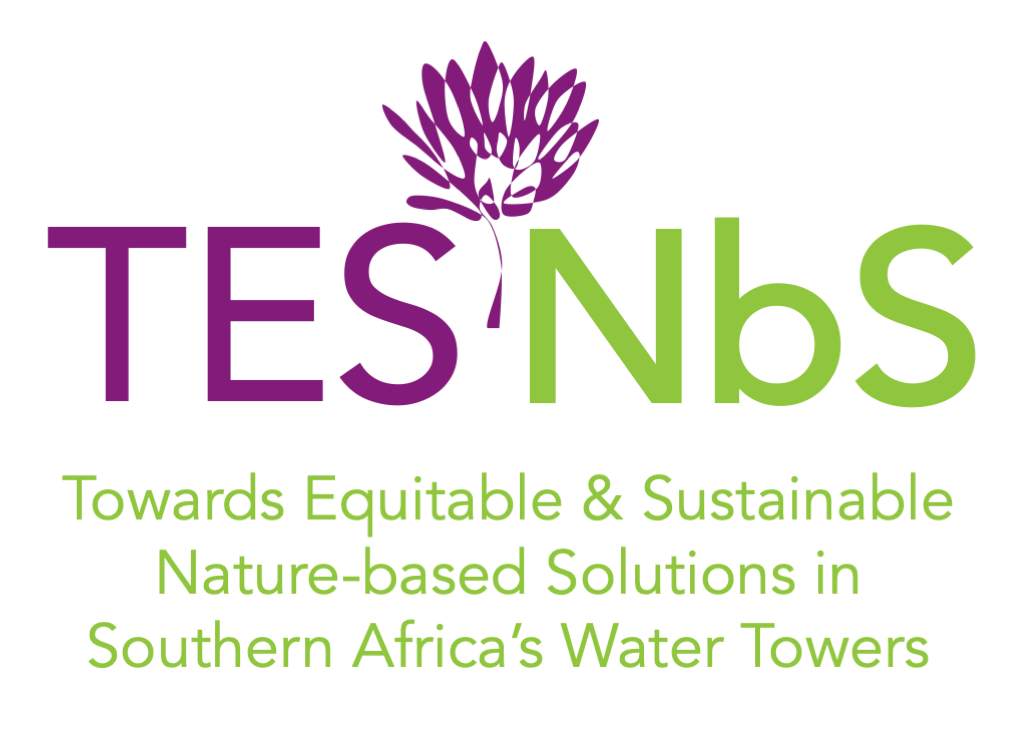
Nature-based Solutions (NbS) involve working with nature to promote human well-being and ecosystem benefits, and can support climate mitigation and adaptation actions and reduce climate risk. However, the widespread popularisation of NbS through various northern-driven, high-level campaigns has raised concern amongst scholars in the Global South regarding the appropriateness of some of these solutions in local contexts. This is especially applicable in Africa where many peoples’ livelihoods are heavily dependent on their landscapes and the multiple ecosystem services derived from these landscapes. Furthermore, the impacts of climate change on many of these critical ecosystem services are not yet fully understood. NbS tend to be much more complex and contested in practice than is generally implied in the dominant narratives. The outcomes of these solutions are often mixed and dependent on the institutions, politics, and particularities of place. Little work has been undertaken on the longevity of NbS under a constantly changing climate. The TES-NbS project explores the role of NbS in reducing risk and vulnerability to climate change in developing regions, focusing on Southern African Water Towers. Read more
Technical Analysis for the Adaptation Component of South Africa’s Second NDC
Researchers at the University of Cape Town’s African Climate and Development Initiative (ACDI) and Energy Systems Research Group (ESRG) conducted comprehensive analyses on climate change adaptation and mitigation to support the national development of South Africa’s second Nationally Determined Contribution (NDC2). Their work provided the government with critical technical evidence, including assessments of climate risks, adaptation priorities, and mitigation pathways, which informed the strengthened commitments South Africa submitted under the Paris Agreement.
Transformative Social Learning driving Transdisciplinary Sustainable Development Action and Education System Change (CoP)
ACDI is a partner in a two-year NRF Funded SARCHI chair Community of Practice (CoP) led out of the Environmental Learning and Research Centre (ELRC) at Rhodes University. The Community of Practice (CoP) pro-actively brings together five Education and Social Science Chairs and Senior Professors (Lotz-Sisitka, Rosenberg, Le Grange, Swilling, Moyo) with 9 Sustainability Science Chairs and Senior Professors (Hill, Limson, Luus-Powell, Scholes, Shackleton, New, Vogel, Palmer, and Odume) from six universities amongst which 5 are SARChI Chairs and 5 Distinguished Professors. The COP thus links leading research centres who are all actively developing Transdisciplinary Sustainability Sciences and mentoring large numbers of early career researchers. The CoP also links to important African Research Partnership Networks. These coordinated efforts aim to strengthen co-engaged transdisciplinary sustainable development action via transformative social learning methods and approaches; contribute to sustainable development policy engagement, as well as formal and informal education, skills, and social learning system development; and contribute to transdisciplinary sustainability science, and educational and learning science theory, methodology and practice.
Transforming Energy Access - Learning Partnership (TEA-LP)

The TEA Learning Partnership (TEA-LP) aims to build the necessary human capital to achieve SDG 7 and increase access to affordable, clean and safe energy for all.
The TEA-LP is supporting eight universities across Africa to develop new postgraduate curricula for the energy access sector. Partner universities are provided with both financial and technical support to develop their new courses and degree programmes. The ACDI is managing the overall programme of support to the eight partner universities.
The TEA-LP is being supported by the Transforming Energy Access programme (TEA), funded by UK Aid and managed by the Carbon Trust. TEA aims to foster the development of innovative technologies, business models, partnerships and skills that will accelerate access to affordable, clean energy services for households and enterprises in developing countries.
Tuwe Pamoja
Tuwe Pamoja means “Let’s be together” in Swahili, signifying our aim to bring together city residents, officials, NGOs, community groups and researchers from four African cities. Together, we want to strengthen the capacities of city actors to plan and implement climate resilient nature-based solutions that are locally driven, effective, and equitable for all urban residents. The project runs in informal settlements in Accra, Cape Town, Lusaka and Nairobi from May 2024 to December 2026. Work is concentrated on three themes of nature-based solutions (NbS), climate risk and intersectionality.
Urban water governance for resilience in Cape Town
Efforts to promote urban sustainability increasingly involve a combination of objectives such as reduced inequality and poverty, maintaining environmental integrity, strengthened resilience, and adaptation to expected climate change. This project aims to explore what priorities different actors have within Cape Town regarding water, especially in terms of sustainability, resilience, and social justice and how they seek to influence events. The project engages with the concept of multilevel governance to explore governance between the city-level and neighbourhood-level. It looks at the different actors, how they cope with water challenges and explores how to build responses that might address multiple and sometimes incompatible needs. Central to the project is the recognition of trade-offs, negotiations and conflicts around water when actor interests differ and uneven power dynamics are at play.
Water Stressed Cities (WSC)
The Water Stressed Cities (WSC) project explores the factors shaping the response of households to the threat of water shocks in four major cities – Cape Town, Dodoma, Lagos and Windhoek – and how their actions can affect the wider resilience of the places where they live and surrounding communities. One of the key features of the research is to explore the role of groundwater in promoting the resilience of cities, and urban communities.
Past Projects
-
Facilitating Peer-to-Peer Learning to Build Climate Resilience to Floods and Droughts
This project involved designing and facilitating peer-to-peer learning to enhance understanding and practice of climate change adaptation and resilience at the national and municipal levels. The work included analysis and knowledge sharing of resilience building for two main adaptation challenges, floods and droughts, with a focus on eThekwini and Nelson Mandela Bay.
-
Cape Town Drought Response Film Library

The Cape Town Drought Response Film Library is the first product of the Cape Town Drought Response Learning Initiative – a joint undertaking by the ACDI, Peter Willis of Conversations that Count, and Victor van Aswegen of CineSouth Studios that began in mid-2018.
This film library showcases interviews from a range of people who were intensely involved in crafting Cape Town’s response to the 2017-18 water crisis. Each interviewee reflects in detail upon what happened in the crisis from their perspective, why it happened, what worked and what didn’t work, and what lessons we have learned or could learn from the experience.
OUR FUNDING PARTNERS
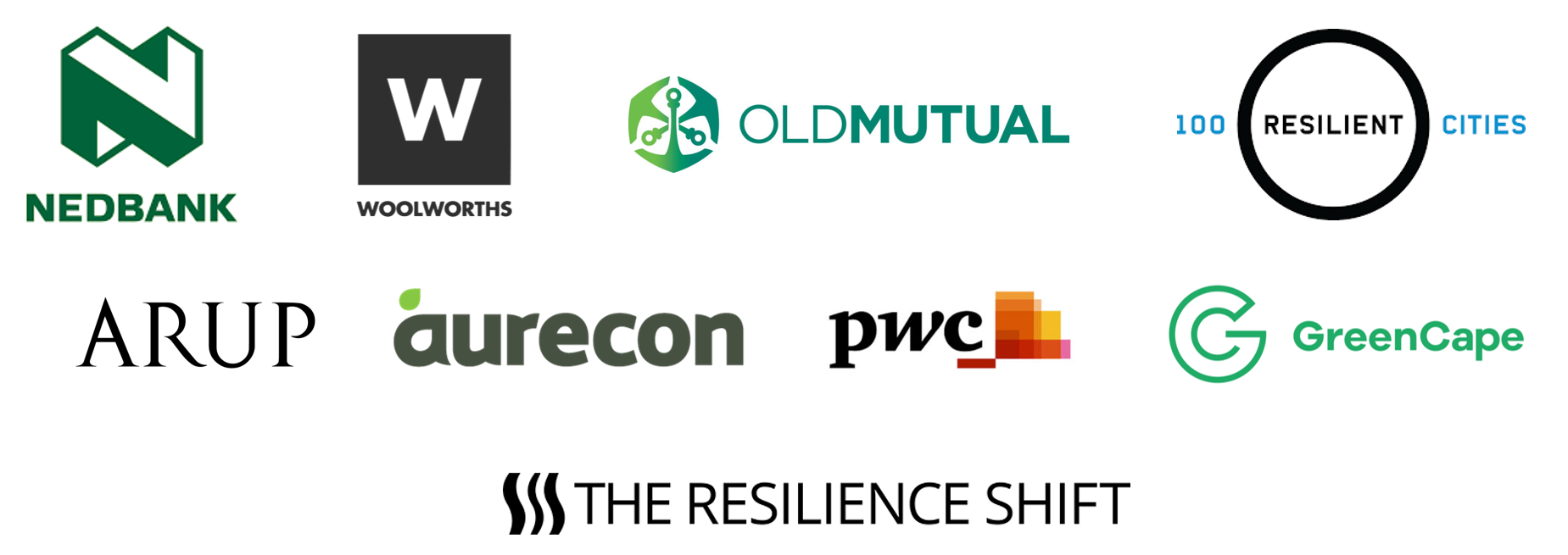
-
Climate Resilient Development (CRD) Pathways
This project supported the Presidential Climate Commission (PCC) of South Africa develop a Climate Resilient Development Pathways (CRDP) conceptual framework and methodology to facilitate coordinated action transitioning South African society in a just and inclusive manner to be climate resilient and net-zero by the 2050s. The purpose of the work was to establish the basis and set the direction for future knowledge (co)production and planning work in relation to the adaptation and climate resilience aspects of navigating a ‘Just Transition’. To ground the conceptual work, we explored the potential application and value-add of a pathways approach in the contexts of eThekwini in KZN and Saldanha Bay on the West Coast. We developed (1) a set of guidelines on why and how to operationalize a CRD pathways approach, (2) a set of recommendations for building the climate information and services ecosystem needed to support a CRD pathways approach, (3) a framework for assessing and strengthening capacities for utilizing the approach, and (4) a set of four high-level proposals for taking the CRD pathways work forward.
-
Energy 4 Well-Being
The project researches the link between wellbeing and the provision of renewable, off-grid energy in informal settlements in South Africa. It will provide detailed, qualitative and quantitative data on off-grid energy provision impacts on wellbeing in the poorest South African households. Data will be sourced using innovative, app-based digital methodologies, and interviews and other qualitative methods. The project unites engineers and social scientists through the main project activity: an intervention to bring solar home systems and a mini-grid to a small informal settlement in Cape Town, that has not been electrified. In so doing the project sets out to achieve real change, and addresses Sustainable Development Goals related to sustainable and healthy communities, reducing inequalities, and improving socio-environmental conditions for households. A key aim of the project is to engage with South African decision makers and private sector audiences in addition to communities, to ensure the findings of this project have the potential to inform policy.
-
Enhancing Trust in Government for Effective Water Governance (EnTruGo)
EnTruGo is a collaborative interdisciplinary research project between four participating universities (Wageningen University, Netherlands; Barents Institute at the Arctic University of Norway, Norway; Stockholm Environmental Institute, Sweden; and the African Climate and Development Initiative, University of Cape Town, South Africa). The central aim of this project is to explore how public- and stakeholder trust in water governance processes can be enhanced in order to more effectively address the rapidly increasing requirements on water governance to successfully adapt to urgent societal water needs.
-
IFAD Multi-country climate-risk analysis
This project aims to assess the potential impacts of climate change on high-priority rainfed agricultural crops in eight African countries (Angola, Malawi, Malawi, Mozambique, Rwanda, Uganda, Zambia and Zimbabwe), based on the application of downscaled climate scenarios and GIS-based tools for modelling current and future crop suitability. In particular, we use a selection of General Circulation Models (GCMs) to compare the likely changes to the climate of each of the studied countries between the historical baseline and the mid-century (~2050) future, and the resultant impacts on productivity of a range of staple crops (primarily cereals such as maize and sorghum, legumes such as beans and groundnuts, and root crops such as cassava and sweet potato). We quantify the impacts of climate change on each of the crops in terms of % and total change of crop production per person, per household and per administrative region. We also provide indicative estimates of the economic impacts of climate change on crops by calculating the approximate costs for replacement of lost production that will be incurred by subsistence smallholder farmers. Finally, we aim to identify which administrative regions (i.e. provinces, regions or districts, depending on the country) are likely to be most and least vulnerable to the impacts of climate change on staple/subsistence crops.
-
Biophysical and economic impacts of hydroclimatic extremes
This project is led by the Environmental Change Institute at University of Oxford in partnership with ACDI Director Prof Mark New, under his AXA Chair in African Climate Risk. This research brings together cutting-edge climate change attribution and impacts science to develop methods that can apportion the socio-economic costs of climate change between local factors that affect sensitivity to climate change and global-scale human forcing of climate that changes the risk of climate extremes. The methods will be developed and tested for drought and flood impacts in South Africa, but results will be applicable to a wider range of climate change loss and damage situations across the world.
Through this project, researchers undertake joint attribution of human influence on both climate and system exposure, within the context of drought and flood. Research is based in two river catchments in South Africa, the Berg in the Western Cape and Umgeni in Kwa-Zulu Natal; both have good climate, hydrological, biophysical and socio-economic data. South Africa provides a good case for exploring loss and damage in a developing country context, as it faces similar climate risks and vulnerabilities to other sub-Saharan countries.
The project has the following specific objectives:
-
Attribute human influence on the risk of hydrologically significant (drought and flood) rainfall extremes.
-
Attribute human influence on catchment sensitivity to hydrologically significant rainfall extremes.
-
Jointly attribute the relative contribution of (1) and (2) on changing risk of significant droughts and floods.
-
Estimate the economic damage of drought and flood that can be attributed to human influence on climate and catchment sensitivity.
-
Estimate the social and economic benefits of adaptations to reduce catchment sensitivity.
-
-
Future Resilience for African Cities and Lands (FRACTAL)
Future Resilience for African Cities and Lands (FRACTAL) is a four-year project within the multi-consortia Future Climate for Africa (FCFA) programme. This project addresses the challenge of providing accessible, timely, applicable and defensible climate information that is needed by decision-makers operating at the city regional scale in southern Africa. This project is managed out of the Climate Systems Analysis Group in collaboration with multiple partners, including the ACDI.
One of the main scientific problems for understanding southern Africa’s climate is that different models give contradictory scenarios for climate trends over the next 5-40 years. Through a transdisciplinary learning approach and scientific research FRACTAL is contributing to an improved understanding of climate processes, and regional and local climate trends that drive the southern African climate system’s natural variability, and responses to change within that system.
The project engages with scientists, engineers, government representatives and other stakeholders. Working together, they are co-producing relevant knowledge that will support resilient development pathways and enable decision-makers to better integrate pertinent climate knowledge into their resource management decisions and urban development planning.
-
Green infrastructure for climate adaptation in peri-urban areas (Urban Ecolution)
This project combines multi-scalar institutional analysis, empirical data collection, and participatory scenario planning for a comprehensive understanding of the synergies and trade-offs of green infrastructure for climate adaptation in the peri-urban areas of Sub-Saharan Africa. We focus on the overabundance or scarcity of water, given the growing need to secure a reliable water source to cities with quality and supply-demand constraints, and because cities typically rely heavily on engineering infrastructure for water storage/purification.
-
Peri-Urban Resilient Ecosystems (PURE)
PURE aims to support the development of just and representative climate resilient urban strategies in dryland Windhoek, Namibia, to enhance future health, wellbeing and economic development. The project’s principal focus concerns applying an innovative values-based scenario tool to develop urban policy informed by multiple stakeholder value systems (e.g., municipal authorities, urban planners, marginalised and informal communities).
-
Socio-Economic Benefits of Ecological Infrastructure (SEBEI)
The overall objective of this innovative, transdisciplinary research project is to develop an evidence-based integrated framework and prototype “investment case” for strengthening water-related Ecological Infrastructure (EI) while: i) supporting well-functioning livelihood strategies/value chains; ii) creating new livelihood opportunities and value chains; and iii) reducing hydroclimatic risks.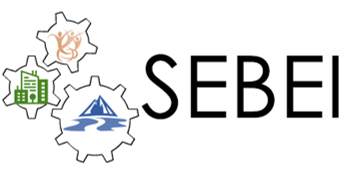
Started in July 2018, SEBEI aims to generate new knowledge by combining livelihoods and value chain analysis with an EI approach to water management and next-generation hydroclimatic modelling at optimal spatial resolution (see our work packages). With this combined approach, our interdisciplinary project team focuses on developing a more sophisticated conceptualisation of the linkages between EI and livelihoods. Hence, we investigate how people might benefit from a strengthened and cost-effective water supply system realised through optimised restoration and rehabilitation of EI with income-creating co-benefits.
-
Transforming Social Inequalities through Inclusive Climate Action (TSITICA)
It is now broadly recognised that multidimensional inequality – the distribution of assets, wealth, human capital – bounds and limits sustainable development and its benefits to the poor. The Transforming Social Inequalities through Inclusive Climate Action (TSITICA) project addresses the nexus of climate change, sustainable livelihoods, poverty and inequality to understand how Climate Change Actions (SDG13) can be socio-economically transformative and synergistic with the Agenda 2030 aims of eliminating poverty (SDG1), reducing inequality (SDGs 5 and 10), and providing decent work and sustainable economic growth (SDG 8).
-
UCT - UEA Newton PhD Partnership on Understanding the Climate system and Coping with Climate Change
The developing world is projected to suffer disproportionately from the effects of climate change. Many uncertainties remain in the likely conditions the world will experience, for example in local rainfall, and the effects of such changes on agriculture, fisheries, health, and industrial development. It is today's early career researchers who will be tasked with tackling these challenges in future. To generate the skilled people necessary, we have developed an international PhD partnering between the University of Cape Town (UCT) and the University of East Anglia (UEA) in the areas of (1) understanding the climate system, including the ocean and atmosphere, and (2) developing capacity to cope with a changing climate.
The partnership sees exchanges between PhD students working in the fields of climate science (e.g., climate modelling, ocean science, atmospheric science), climate impacts (e.g., social science, international development, human health, agriculture, fisheries), and adaptation strategies. UEA and UCT are two universities with strong expertise in these disciplines. These strong and complementary centres and academics are brought here together in a formal arrangement for the first time. The PhD researchers benefit from strong expertise in both UEA and UCT in a range of key and modern methods. They learn the skills needed to fully develop as researchers and operate in a global research environment in their field.
Our partnership includes world experts in the measurements of ocean currents, marine biogeochemistry and ecology, fisheries survey, and atmospheric trace gases, as well as experts in conducting fieldwork on climate change adaptation and on epidemiology. We also have expertise in the synthesis and analysis of global datasets such as the global temperature (CRUTEM) and global ocean CO2 (SOCAT), and in the modelling of physical climate, biogeochemistry, and integrated assessments of impacts and adaptation options.
-
University Staff Doctorate Programme
The University Staff Doctorate Programme (USDP) is a programme by the South African Department of Higher Education (DHET) which aims to generate collaborative professional development opportunities for staff in higher education institutions in South Africa and the United States. It consists of several projects each with a different thematic or disciplinary focus.
ACDI is leading a USDP project which brings together South African and United States universities to help transform South African academic expertise relating to ‘Climate risk, resilience, and sustainable development’ (2018 – 2023).
The partnership includes the University of Cape Town, University of Fort Hare and University of Venda from South Africa, and the University of Arizona and Penn State University from the United States.
The project aims to support 10 high caliber South African university staff (of which 80% will be black and/or women) to obtain PhDs in fields related to climate risk, resilience and sustainable development, and applied to a South African context. These 10 candidates will be selected from University of Cape Town, University of Fort Hare and University of Venda staff.
-
WEF - Exploring the Evidence of Water-Energy-Food Nexus Linkages to Sustainable Local Livelihoods and Wellbeing in South Africa
Essential natural resources such as water, arable land and biodiversity assets are being overused and degraded in many parts of the world, necessitating the move towards an integrated approach to natural resource management (e.g., Rockström et al., 2009; Vorosmarty et al., 2010; Cole, 2014). The Water-Energy-Food (WEF) nexus is a framework that captures the inter-relations, synergies and trade-offs between the demand on water, energy and food, in the context of the emerging constraints of sustainable development in particular regions or systems (Scott et al., 2015). Nexus thinking is based on a systems approach and often uses the socio-ecological system as a primary point of reference. The WEF nexus is argued to be valuable for understanding complex systems, and for decision making to achieve macro-scale sustainable development. However, the ultimate measure of success for achieving sustainable development is measured at a different scale, namely, the improved livelihoods and wellbeing of individuals and households. So far, nexus research has remained weak in identifying how the nexus is interlinked with livelihoods (Biggs et al., 2015). In the South African context, a deeper understanding is needed of how the nexus framework can assist in building livelihood resilience across the socio-economic spectrum, and in shifting towards a sustainable economy.
This project aims to fill the identified knowledge gap, by exploring how the nexus plays out in affecting local livelihoods and wellbeing, and how this understanding can support more equitable sustainable development outcomes at the household level.
-
Adaptation Futures 2018
Adaptation Futures 2018, the fifth in the Adaptation Futures international conference series on global adaptation, was held in Cape Town from 18 -21 June. The conference aimed to facilitate Dialogues for Solutions between key actors from diverse perspectives and regions and attracted over 1300 scientists, practitioners, business leaders and policymakers from around the world. This is the first time the conference was held on the African continent. We used this setting to foreground developing country adaptation issues and increase developing world participation. Funding was raised to support the access of over 180 sponsored delegates from lower income countries and/or Africa.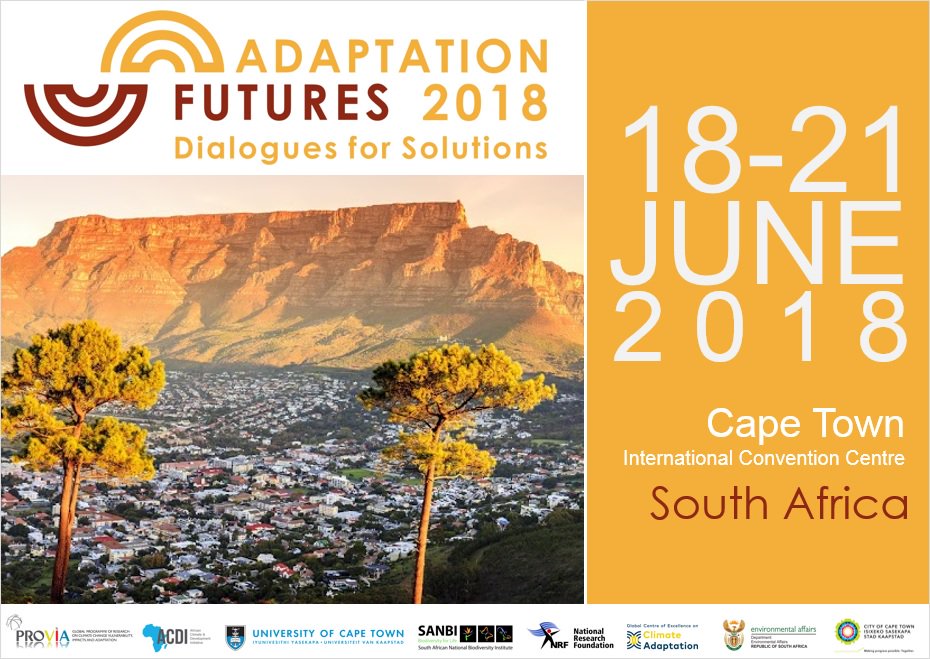
-
Adaptation at Scale in Semi-arid Regions (ASSAR)
Working in the semi-arid regions of Africa and India, the five-year (2014-2018), multi-institutional and multi-scale ASSAR project combined interdisciplinary scientific research (at regional and thematic levels), capacity building, and stakeholder engagement to improve understanding of the barriers and enablers to effective climate adaptation. Our work centred on informing climate adaptation policy and practice in ways that advance the agency and long-term wellbeing of the most vulnerable.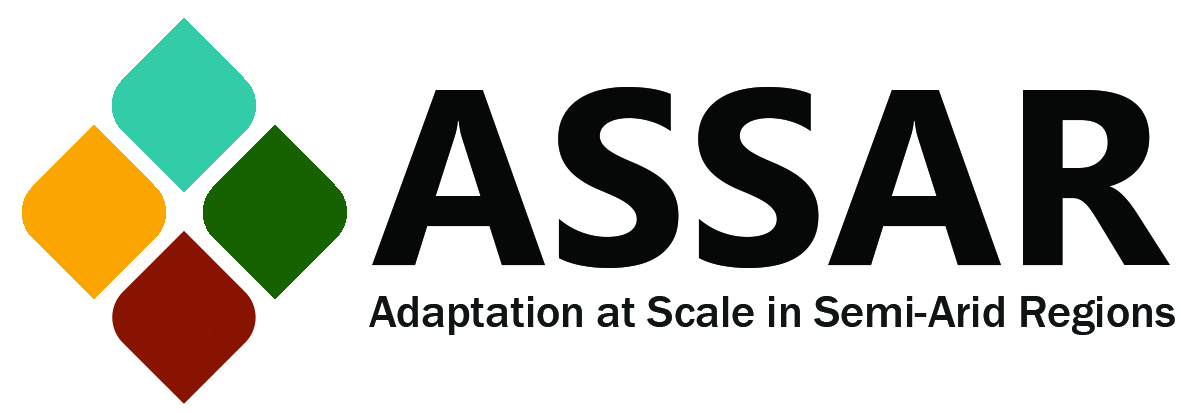
ASSAR was a project within the CARIAA (Collaborative Adaptation Research Initiative in Africa and Asia) programme, funded by IDRC and DFID.
-
AfDB Decision Making
Enhancing the Capacity of African Countries to Use Climate Information to Inform Decision-Making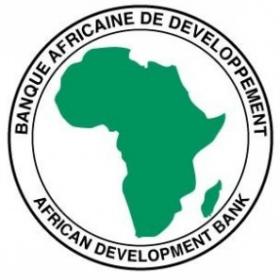
The ACDI led the development of a Climate Information Project, which was designed in response to a call by the African Development Bank (AfDB) to develop a set of updated climate change assessments for 25 African countries. The purpose of these climate change assessments was to support improved decision-making within AfDB by integrating considerations of climate change, including country-specific priorities for climate change mitigation and adaptation, into the design and risk management strategies of future projects in Africa.
-
Berg River Climate Knowledge Network (CKN)
This project brought together a network of academics, practitioners and civil society members working within the ambit of the Bergrivier Municipality, to facilitate knowledge sharing, relationship building and applied interdisciplinary research. The CKN was born in 2012, with an original group of 23 members, comprising academics from various departments at the University of Cape Town, those working in both local and provincial government, and various civil society and industry representatives. The groups’ initial focus was on the Bergrivier Local Municipality, situated in the greater West Coast District in the Western Cape.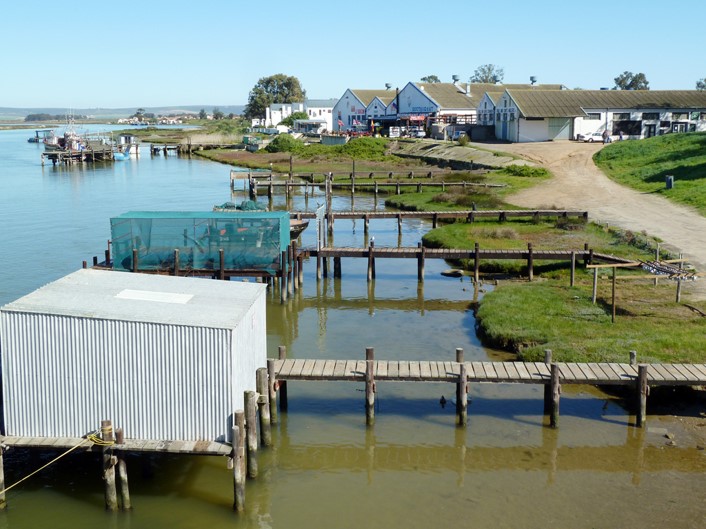
-
China and South-South Scoping Assessment for Learning and Development (CASSALD)
CASSALD was part of a larger initiative, Adapting to Climate Change in China (ACCC) which itself is an innovative policy research initiative focusing on linking climate change research with policy making and development. ACCC started in June 2009 as a collaboration between UK, China and Switzerland, that is funded by DFID China, the Swiss Agency for Development Cooperation, DFID Research and the UK Department for Energy and Climate Change (DECC).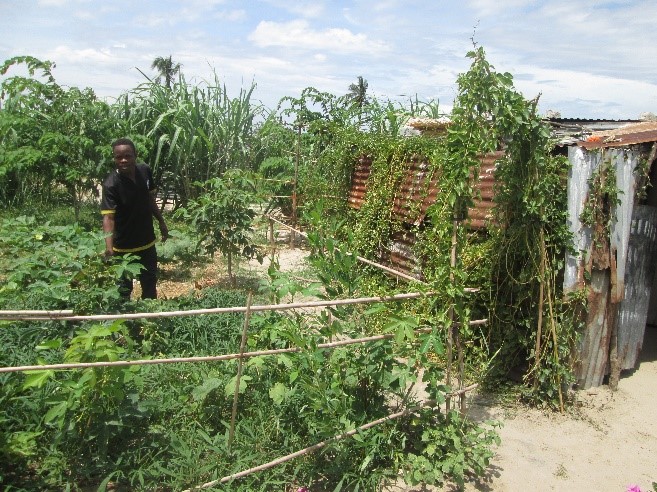
The overarching aim of Phase 1 of CASSALD was to identify key opportunities and avenues for South-South learning and climate-compatible development and how to best channel resources to share China and developing countries' experiences of integrating climate adaptation into the development process. This project was implemented in 10 countries across three regions including Africa (Angola, Ethiopia, Kenya, South Africa, Rwanda); Asia (Bangladesh, Nepal, Indonesia) and the Caribbean (Grenada, Jamaica).
The ACDI worked in collaboration with Intasave to contribute to the South African case study.
-
Climate Impact Research Capacity and Leadership Enhancement in Sub-Saharan Africa (CIRCLE) programme
The Climate Impact Research Capacity and Leadership Enhancement in Sub-Saharan Africa (CIRCLE) programme was an initiative of the Department for International Development (DFID) of the United Kingdom (UK) to develop the skills and research output of early career African researchers in the field of climate change and its local impacts on development. The programme ran from late 2014 to early-2018, with cohorts in 2015, 2016 and 2017. CIRCLE was managed and implemented by the Association of Commonwealth Universities (ACU) and the African Academy of Sciences (AAS).
-
Community Adaptation Small Grants Facility
The key aim of this research project was to increase understanding of the role of international funding in developing countries in supporting climate change adaptation (CCA) across scales and, especially, on the ground. Three questions informed the research: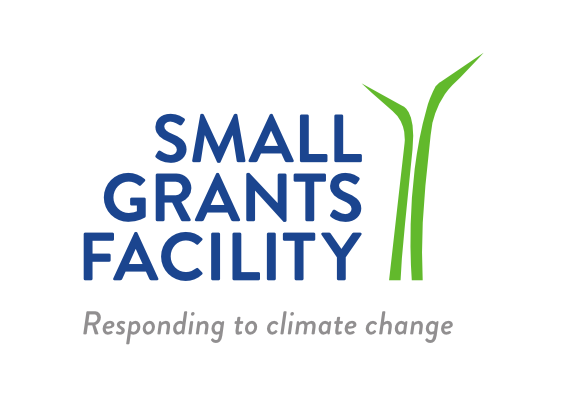
1. How do we to track and measure the change in adaptive capacity of beneficiaries and implementers as a result of CCA programmes?
2. What is the effectiveness of CCA projects implemented by local organisations with international funding?
3. What are the barriers and opportunities for ensuring that international funding for CCA benefits vulnerable groups?
The study was based on a review of existing literature and extensive fieldwork. The programme: “Taking Adaptation to the Ground: A Small Grants Facility for Enabling Local Level Responses to Climate Change" served as the case study for analysis.
This research linked to a number of other ACDI projects that are asking similar questions (e.g. ASSAR). It also contributed to the advancement of research in the field (e.g. through publications). The project increased understanding of what constitutes an effective institutional configuration for CCA in developing regions, both in terms of the kind of organisations that are most conductive to successful implementation of CCA strategies and the configurations that support effective transfer of fund from international to local level.
-
Defining South Africa’s climate change adaptation research agenda
This project was funded by GIZ through the Department of Environmental Affairs. It was led by ACDI, in partnership with the Climate Systems Analysis Group. The aims and objective of this research were to inform the scope of work and research agenda for Phase Three of South Africa’s Long-Term Adaptation Scenarios (LTAS) Flagship Research Programme. Furthermore, the assignment provided a practical, evidence-based assessment of the effectiveness of the preceding LTAS phases and the degree to which emerging research had been integrated into ongoing processes for adaptation planning. Finally, the project aimed to generate clear, practical recommendations to support the effectiveness and uptake of further research in priority adaptation-related themes.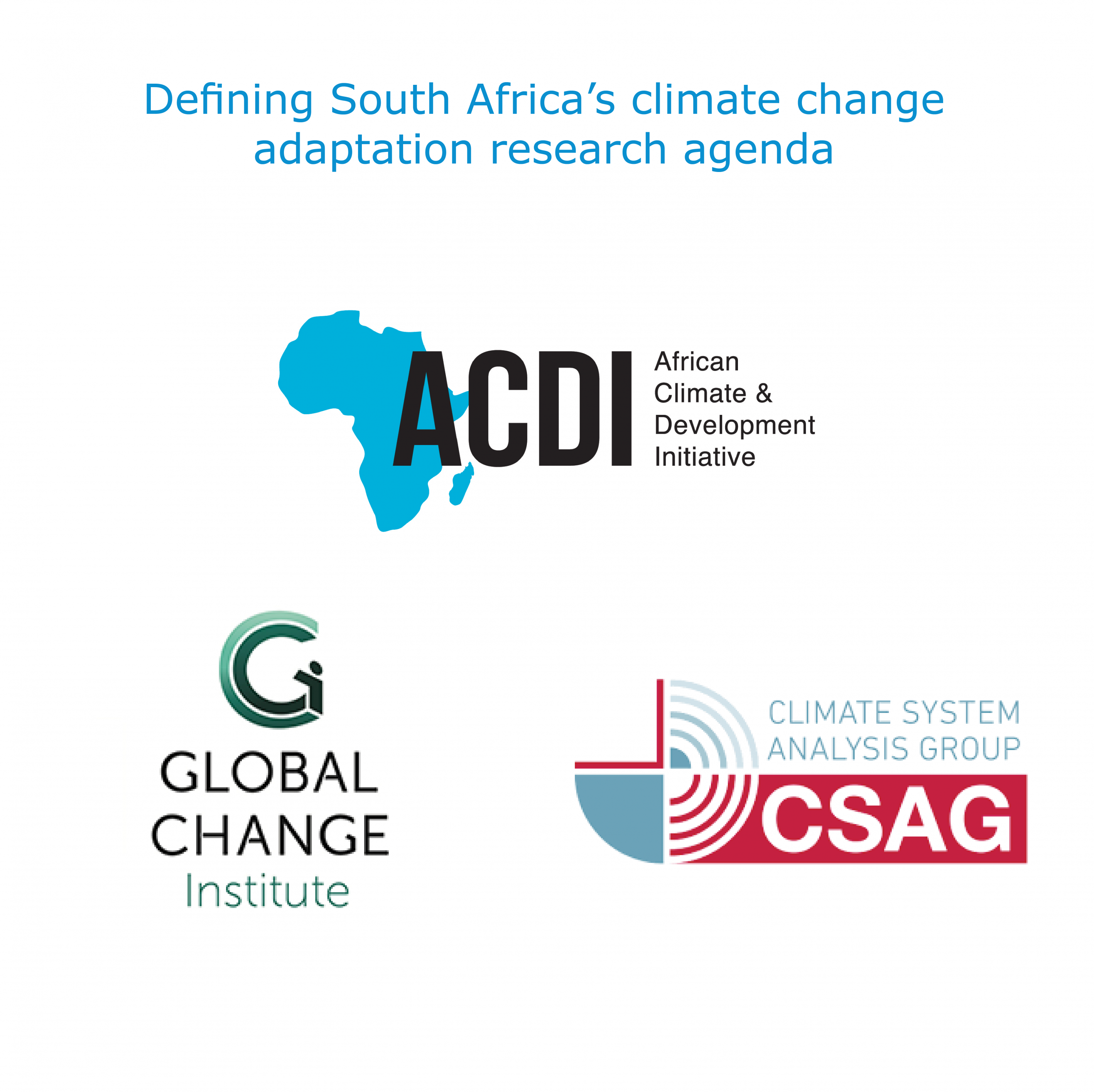
The programme of work was delivered through a multi-stage approach based on:
- Updated review, collation and analysis of the existing body of research on climate change adaptation.
- Bilateral consultation and interviews with key national stakeholders and experts.
- Multilateral stakeholder consultation and facilitation of expert discussions in dedicated workshop.
- Synthesis of research gaps and needs to inform the thematic and sectoral research agenda of the upcoming LTAS 3.
-
Food, Energy, Water, Land-Use and Biodiversity Nexus (FEWLB)
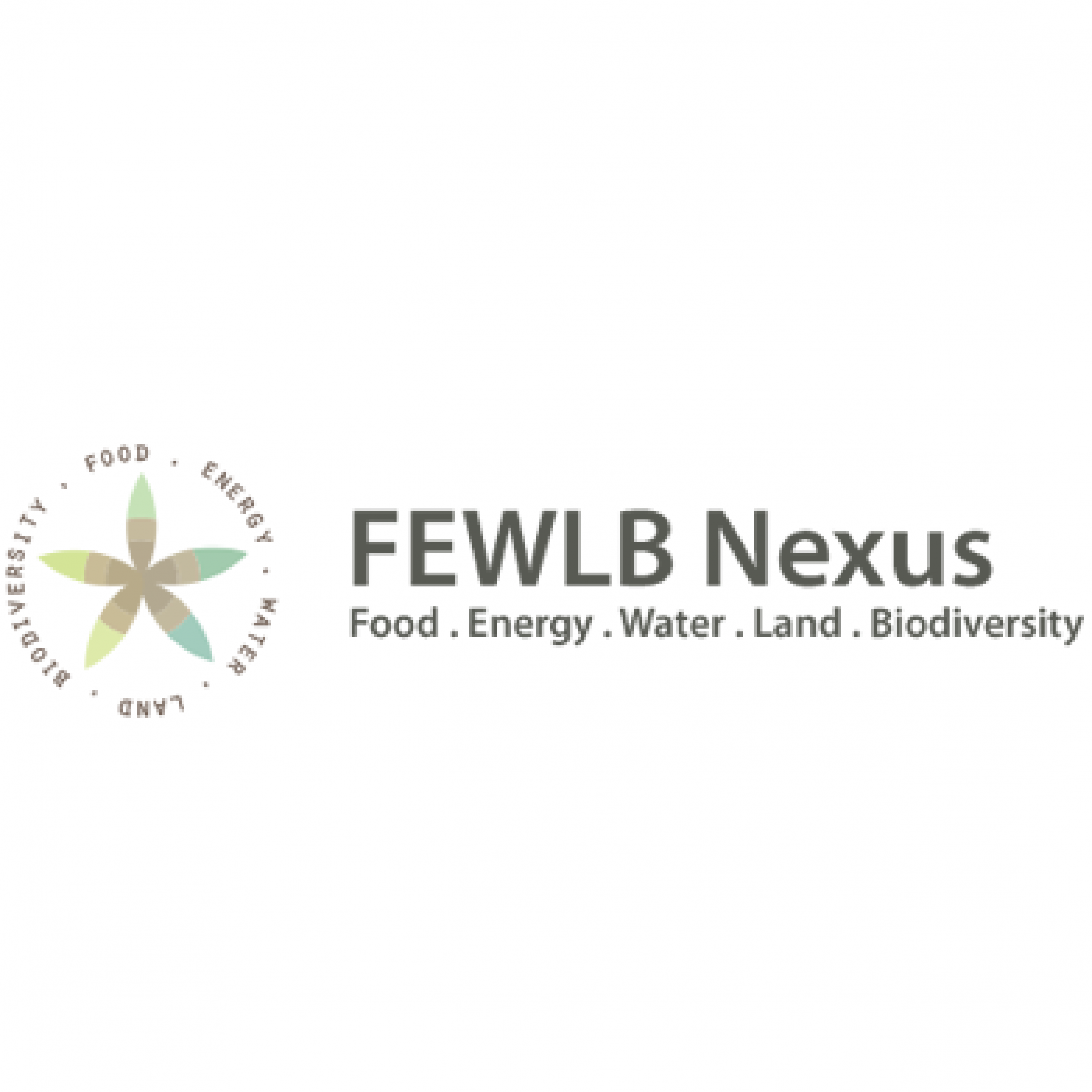
The Berg River catchment represents an excellent example of a resource under pressure at the nexus of water, food and energy. Pollution in the Berg River catchment, however, is a cause of great concern especially to communities, farmers and industry in the various municipalities of the West Coast and Cape Winelands regions. Various stakeholders have implemented initiatives to address the pollution concerns raised. In addition, there is increasing concern that the water will not be adequate in future to service the entire region – in particular, that the planned industrial development at Saldanha will not be possible with the predicted future resource unless the management of that resource is changed significantly. It must be noted here that, in relation to government powers and functions, the Berg River extends across all three spheres of government.
The Food, Energy, Water, Land and Biodiversity (FEWLB) Nexus project looked to inform decision making and project development to foster sustainable resource use and development within this catchment area. ACDI implemented this project in collaboration with the Western Cape Department of Environmental Affairs and Development Planning. The project was funded by the British High Commission and the Cape Higher Education Consortium (CHEC).
-
Fulcrum Institutions and Sustainability Programme (FISP)
The Environmental Security Group work within the Centre for Criminology to understand how the governance environment shapes environmental risk and societies exposure to it. In particular, the Fulcrum Institutions and Sustainability Programme was a three-year South African National Research Foundation (NRF) ‘Global Change, Society and Sustainability’ (GCGC) grant. The progamme investigated the governance of environmental change and how society is, and can, adapt to the myriad threats presented by climate-risk both in South Africa and elsewhere. The programme explored how ‘fulcrum institutions’, those institutions with the capacity to lever large-scale societal change, can be enrolled to help realise sustainable solutions in the face of global environmental change. The ‘fulcrum institutions’ under investigation included the global insurance and financial industries, local municipal governments and the key commercial resources industries. The programme drew upon mutually beneficial strategic partnerships with key stakeholders within each of the sectors it engaged, as well as research partnerships with a number of academic institutions and non-profit organisations. Based on promoting reciprocal partnerships, the programme's outputs not only included academic publications, but also active contributions to policy development, and broader engagement with civil society.
-
Fostering Local Well-Being (FLOW)
The FLOW project was a two-year long research project that took place in two South African municipalities – the Greater Kokstad Municipality in KwaZuluNatal, and the Bergrivier Municipality in the Western Cape, from August 2014 – September 2016. The project engaged out-of-work, out-of-school local youth – the FLOW Ambassadors – to build both individual and community capacity to thrive and innovate in the face of the growing challenges of climate change, resource depletion and inequality. Key activities included asset mapping, local storytelling on mobile phones, personal development, local government engagement and the introduction of two community currencies. Flow produced several resources which can be accessed here.
-
Global Islands' Vulnerability Research, Adaptation, Policy and Development Project (GIVRAPD)
GIVRAPD was a project led by the CARIBSAVE Partnership and funded by the CDKN.The project was designed to use a common community-based vulnerability assessment (CBVA) framework to integrate scientific and local knowledge from comparative 'learning sites'. The aim was to understand the multi-scale socioeconomic, governance and environmental conditions that shape vulnerability and capacity to adapt to climate change within and between small and medium-sized coastal communities. The objectives were to address key data and knowledge gaps, develop and evaluate practical local adaptation and climate compatible development (CCD) portfolios, facilitate the mainstreaming and scaling-up of adaptation and CCD, establish scientific and professional networks, and build capacity.
The ACDI was one of the partners working on the project, providing research assistance to undertake the CBVA's as well as contributing to the climate science and the downscaling of climate models for each case study site.
-
GreenSkills: Building capacity for a sustainable future
The Green Skills project worked to facilitate a more proactive approach to green skills planning in South Africa, focusing on a system-based approach to capacity building.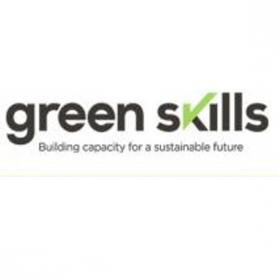
The Green Economy is a key driver for green skills development. This transformative economy is often seen as having the potential to create large numbers of green jobs, but these have not been quantified and there has been little associated skills planning. Key components of the project included a scoping study of green skills research and planning methodologies and approaches; training materials and training programme; a toolkit for organisational development that helps to unlock, plan and budget for green jobs; and greening of jobs along the value chain of an organisation or sector.
Green Skills was a project of the National Environmental Skills Planning Forum and the Green Fund.
-
Mitigation action plans and scenarios (MAPS)
MAPS combined facilitated stakeholder processes with research. The programme supported South-South collaboration between developing countries in their plans to implement more ambitious mitigation actions. The Energy Research Centre, in collaboration with SouthSouthNorth, focused on supporting researchers in MAPS countries in analysing actions and how that can contribute to achieving targets and overall reductions in the growth of emissions. MAPS built on the experience of South Africa’s long-term mitigation scenarios, and activities in each country crucially included a participative process with stakeholders from all sectors. In this sense, MAPS was not only another research study – but the information was produced in partnership with the best indigenous and international research. It strongly built on existing in-country research capacity, feeding information into a national process run by the country.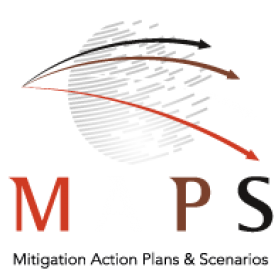
-
Measurement and Performance Tracking (MAPT)
The World Resources Institute (WRI) led the Measurement and Performance Tracking (MAPT) initiative in six developing countries, including South Africa. The goal of this project (managed by the Energy Research Centre) was to work in partnership with national actors to build capacity and promote shared perspectives and readiness among key stakeholders on the design and implementation of credible systems to make mitigation actions by developing countries measurable, reportable and verifiable (MRV), at the national, policy, and industry levels.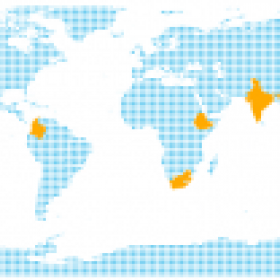
In 2013 the Energy Research Centre undertook 3 case studies relating to MRV in South Africa. These case studies, on co-benefits of mitigation actions, the domestic MRV system in South Africa and an examination of the solar water heater roll out in South African can be found on the WRI MAPT website. For general information on the project and other resources, visit the WRI website here.
-
Pro-poor Value Chain Development Project (PROSUL)
The ACDI consulted on the Mozambique Pro Poor Value Chains IFAD funded Project (PROSUL). The project undertook a climate change risk analysis on agricultural value chains from March – August 2016. The thematic study identifed suitable local adaptations related to horticulture, cassava and red meat value chains. It also identified key institutional responses that need to be undertaken to support actions on the ground that will make the required adaptations viable. The technical approach was consultative, drawing on local expertise and endogenous agricultural knowledge and experience as much as possible.
-
Problems and Solutions for Climate Change Resilience and Adaptation in Mozambique
Local communities in Mozambique, and those who support them in government and non-governmental organisations, are faced with the challenge of adapting to the effects of climate change and variability. These effects are expected to include changes in the frequency and severity of floods, droughts and cyclones. In particular, sustainability within the agricultural sector is threatened by both the current and future effects of climate change, with implications for livelihood and food security.
This study had three objectives:
-
To identify: i) available knowledge that deepens the understanding of vulnerability and adaptation responses in the Mozambique agriculture sector; and ii) the processes and pathways of agents, practices and institutions in the production, use and transfer thereof.
-
Use participatory methods to identify: i) gaps in foundational knowledge for understanding climate risks, impacts, vulnerability, and adaptation responses in the agriculture sector; and ii) pathways of the use, production and transfer of existing knowledge by communities, users, government actors and other stakeholders.
-
Produce detailed recommendations for improving the production, transfer and uptake of knowledge around climate change adaptation at farm, regional and national levels.
-
-
Smart Agriculture for Climate Resilience (SmartAgri)
The Smart Agriculture for Climate Resilience (SmartAgri) project was a collaborative project between the Western Cape Department of Agriculture (DOA) and the Western Cape Department of Environmental Affairs & Development Planning (DEA&DP), and the University of Cape Town’s African Climate and Development Initiative (ACDI). SmartAgri has provided a road map for actionable and prioritised initiatives that will take the agricultural sector road towards greater resilience in the face of climate challenges.
-
Smallholder Agribusiness Development Project (SADeP)
The ACDI conducted a risk analysis of various agricultural crops in Angola for the Smallholder Agribusiness Development Project. The overall programme included specific activities to improve the nutritional status of households and build resilience to the effects of climate change at all agricultural levels. The objectives of the risk analysis were to: i) consider the potential impacts of projected climate change on the selected value chains (coffee, sisal, sugar, cotton, maize, bananas, legumes and grazed livestock production) using modelling approaches and GIS tools; and ii) make recommendations on how to manage the climate risks for the aforementioned value chains and increase the resilience of small scale farmers in Angola’s rural communities.
-
Saldanha Bay Municipality Scenario Building: a road to sustainable growth and development?
The project aimed to bring together stakeholders from a spectrum of social, economic, environmental and political backgrounds that are involved in economic development in the Saldanha Bay area for a scenario building process. The view was to facilitate a process of knowledge-sharing and collaboration between the stakeholders in order to begin to develop an integrated, common vision for sustainable economic development in the area. The project was envisioned as the first stage in the development of this integrated vision: its results will be used to develop a funding proposal for taking forwards the process of developing scenarios for the sustainable economic development of the Saldanha Bay area.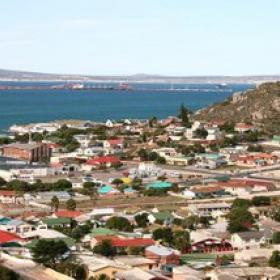
-
SARUA Master’s Curriculum Development and Capacity Building Project
The ACDI was the lead partner in a consortium of southern African universities that recently developed a Master’s curriculum in ‘Climate Change and Sustainable Development’. The curriculum is available to SARUA member universities to adapt and deliver, either as a self-standing Master’s level course, or as part of an existing course that wishes to bring in strong climate change components. The associated online platform publishes new research in the southern African region, enabling knowledge sharing and supporting a community of practice in the field of climate change and sustainable development.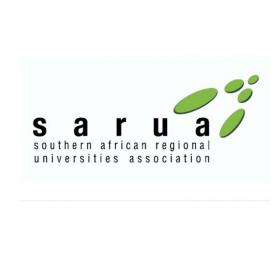
-
Scientific Capacity Development (SCD) study
ACDI led a study in scientific capacity development (SCD) in Africa. The SCD study was financially supported by CDKN, on behalf of the Future Climate for Africa (FCFA) research program. FCFA was a 5-year program to enhance scientific understanding and prediction of extreme weather and climate in sub-Saharan Africa. A central component of FCFA involved the development of scientific capacity in Africa, and the SCD study will help to inform FCFA’s scientific capacity development work, including recommendations based on a portfolio of potential SCD activities and approaches for FCFA. Other key outputs included a literature review with detailed case studies, database of SCD activities, and an evaluation framework for SCD activities.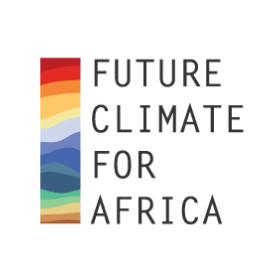
-
Thermotolerance genotypes for sustainable legume production in South Africa
Models predict a continued increase in global atmospheric temperature of about 1.5°C by the end of the 21st Century. This global warming is predicted to negatively affect plant growth and agricultural production, especially in tropical and subtropical areas where temperatures are already high, due to the damaging effect of heat stress on plant development and seed yield. One of the obvious solutions to heat stress is to select and develop crop species with improved tolerance to heat stress and desirable agronomic traits to maintain economic yield under high temperatures. This project aimed to identify thermotolerant genotypes in three legume species differing in growth habit, usage and production areas and seasons in South Africa.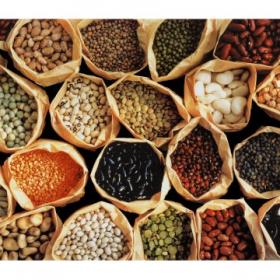
-
South Africa's Third National Communication to UNFCCC (2015/16)
ACDI and CSAG partnered with the CSIR on writing the Impacts and Adaptation chapter of South Africa's Third National Communication to the UNFCCC. The research reviewed current climate trends across South Africa, projections of future climate, key risks and vulnerabilities in a range of sectors, and progress on adaptation to climate change.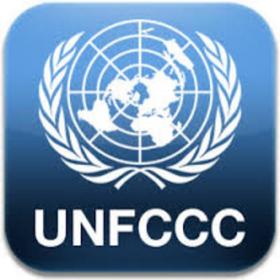
-
Urban ARK
Urban Africa: Risk Knowledge (Urban ARK) was a three-year research and capacity building programme funded by DFID and ESRC. The programme was led by King’s College London with Professor Mark Pelling as Principal Investigator. The work sought to open up an applied research and policy agenda for risk management in urban sub-Saharan Africa.

